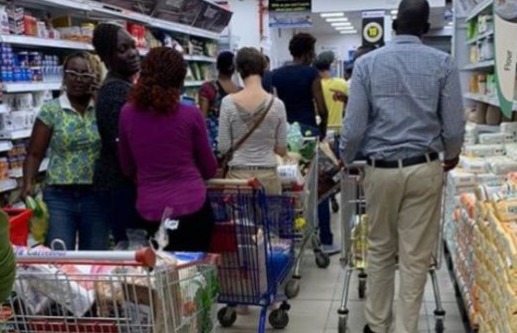The Kenya National Bureau of Statistics (KNBS) has reported a modest increase in the prices of electricity and several essential commodities between September and October 2025, even as the country’s overall inflation rate remained unchanged at 4.6 percent.
According to the latest Consumer Price Index (CPI) and Inflation Report, the cost of electricity for households consuming 200 kWh rose from Ksh5,597 in September to Ksh5,764 in October. Similarly, electricity for 50 kWh usage increased from Ksh1,274 to Ksh1,315, marking a notable rise in energy costs that are likely to affect household budgets and small-scale enterprises.
At the same time, the Bureau recorded mixed price movements across food items, with some staple products becoming more expensive while others dropped slightly in cost. KNBS listed Irish potatoes, beef, tomatoes, and oranges among commodities that saw price increases of 1.6%, 0.5%, 1.2%, and 4.2%, respectively. The cost of mangoes rose by 3.8%, onions by 1.4%, and cabbages by 0.9%. Notably, oranges recorded the highest price surge, climbing from Ksh110.84 to Ksh115.54 during the review period.
Conversely, the prices of maize flour (sifted) and fortified maize flour decreased by 2.3% and 2.2%, respectively. Other food items such as eggs, kale (sukuma wiki), beans, and sugar experienced slight declines ranging between 0.5% and 1.2%.
In the transport sector, KNBS observed varied trends. While international flight fares dropped by 0.6%, the prices of petrol and diesel remained unchanged. However, country bus and matatu fares for travel between towns rose by 1.4%, reflecting higher domestic travel costs.
Prices of selected non-food items also recorded mild increases. Spirits rose by 0.1%, while cigarettes went up by 0.4%. On the other hand, mobile handsets and computers (laptops) saw marginal declines of 0.1% and 0.2%, respectively. Meanwhile, television subscription fees increased slightly by 0.3%.
KNBS further noted that the prices of education, insurance, and financial services remained stable throughout the month.
Despite the price fluctuations across various sectors, the report emphasized that these changes were not significant enough to alter the national inflation rate, which held steady at 4.6 percent.









